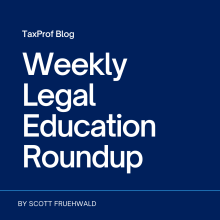Chronicle of Higher Education, In the Fight Over ‘Wokeness,’ Christian Colleges Feel Pressed to Pick a Side:
This spring, two professors at Christian colleges lost their jobs after people complained about how they had brought up race in the classroom.
The professors — one at Palm Beach Atlantic University, in Florida, and one at Taylor University, in Indiana — faced similar circumstances. They were not tenured. They taught writing courses. They assigned readings about race by authors of color, as they had done for many years. But this time, their universities didn’t renew their contracts.
Both included a name on their syllabi that has become a lightning rod in Christian higher ed: Jemar Tisby, a religious historian and professor at Simmons College of Kentucky, a Christian HBCU. Tisby is best known for his 2019 best-selling book, The Color of Compromise: The Truth About the American Church’s Complicity in Racism. The book argues that people of faith throughout American history have worked against racial justice and calls on today’s Christians to reverse the pattern. …
The recent tussles over Tisby’s work demonstrate the pressures that Christian colleges are facing to articulate exactly where they stand in a debate that, to many of their stakeholders, defines the current political moment: Is promoting diversity an urgent priority or an ideological agenda? How institutions appear to answer that question can have major implications — for faculty members and students, for curriculum and enrollment, for finances and campus culture. …
There’s a theory often discussed among the faculty in Christian higher ed that institutional leaders think coming out strongly against “wokeness” will draw more applicants. That’s because many conservative Christians believe that certain faith-based colleges are drifting too far from biblical principles in an attempt to be politically correct.
The enrollment link is tough to prove. College enrollment goes up and down for all sorts of reasons, such as location, demographics, and academic offerings. But a snapshot is illustrative: Several Christian colleges that have recently leaned more explicitly into a conservative identity and publicly denounced concepts connected to racial justice are seeing their enrollments grow. …
In July, Jay W. Richards, a senior fellow at the conservative Heritage Foundation, included Colorado Christian, along with Hillsdale, in an article about institutions where students would not encounter the “mind virus” of critical race theory. (Richards didn’t explain how he drew those conclusions.) A similar list drew attention in 2021: Josh Mulvihill, a former adjunct professor of ministry at Crown College, in Minnesota, who writes about Christian family issues, published a list of “Christian Colleges Without Critical Race Theory.” Colorado Christian made the cut. (Mulvihill declined to comment.)
Despite success stories like Colorado Christian’s, Tisby doesn’t believe a race to the right necessarily results in enrollment gains. As he sees it, clarifying your political or social stance as a Christian college — in whatever way you choose — distinguishes you to like-minded observers. Belmont University, a Christian institution in Nashville, is an example of one that has gone the other direction. Its increasing and public emphasis on conversations about race in the classroom and on campus have correlated with increasing enrollment.
In May, Belmont hired D’Angelo Taylor as its first vice president for hope, unity, and belonging. Taylor said the ecumenical nature of Belmont, which is not affiliated with a denomination, appealed to him. His mission is both to help shape policy that encourages a sense of belonging on campus and to build up the physical space of the HUB, as his new office is called, to be a cultural refuge for students from minority backgrounds.
The university is also making efforts to acknowledge its complicated racial history, including the dedication in 2021 of a memorial to enslaved people who built parts of the campus.
“What we don’t want is for folks to look at Belmont as the last to the table,” Taylor said. “No, we honor the work that’s already been done. Now it’s more formalized.”
Belmont’s full-time enrollment has continued to increase, with 1,910 freshmen enrolled in 2022, compared with 1,827 in 2021 and about 1,560 in the pre-pandemic years.
Though evidence that either rejecting or embracing “woke” positions on race will build enrollment is not conclusive, it’s worth noting that some Christian colleges with no strong position have suffered enrollment losses. Biola University, in La Mirada, Calif., whose president wrote a statement about critical race theory in October 2020 that neither condemned nor accepted it wholesale, has seen its enrollment decline since before the pandemic. According to the student newspaper, the university saw its lowest freshman class in 15 years in the fall of 2022, and in February, Biola announced that it would cut 41 staff and 14 faculty members. President Barry H. Corey said in a statement to The Chronicle that the university’s diversity goal is to “ground our thinking in the truths of Scripture.” …
At Wheaton, some faculty members and students complain that it’s difficult to assess what the college stands for. (Full disclosure: This reporter is a senior at Wheaton College.) It unapologetically invited Tisby to speak on campus in 2019, and a college statement cites Bible verses to explain its commitments to diversity, equity, and justice. But students and faculty of color say they still don’t feel entirely at home. The college continues to hold onto “white evangelical” traditions and worship practices that feel foreign to many Black students, Chang said. And a debate continues over whether to rename the library, whose eponym is a former president found to have resisted enrolling Black students.
Wheaton’s enrollment took a hit during the pandemic and hasn’t recovered as quickly as expected. Last year, the college made cuts in the faculty and eliminated academic programs. …
Regardless of where Christian higher ed goes from here, it isn’t just a story about where students go to college, Tisby said. Such conflicts are a bellwether for the social and political climate of the country at large, he said.
“Faith communities are one of the last and largest truly voluntary associations,” he said. “People don’t have to go there. And so where people are choosing to align themselves voluntarily says a lot about what they deeply believe and what they’re prioritizing.”
Editor’s Note: If you would like to receive a weekly email each Sunday with links to the faith posts on TaxProf Blog, email me here.
https://taxprof.typepad.com/taxprof_blog/2023/09/in-the-fight-over-wokeness-christian-colleges-feel-pressed-to-pick-a-side.html




